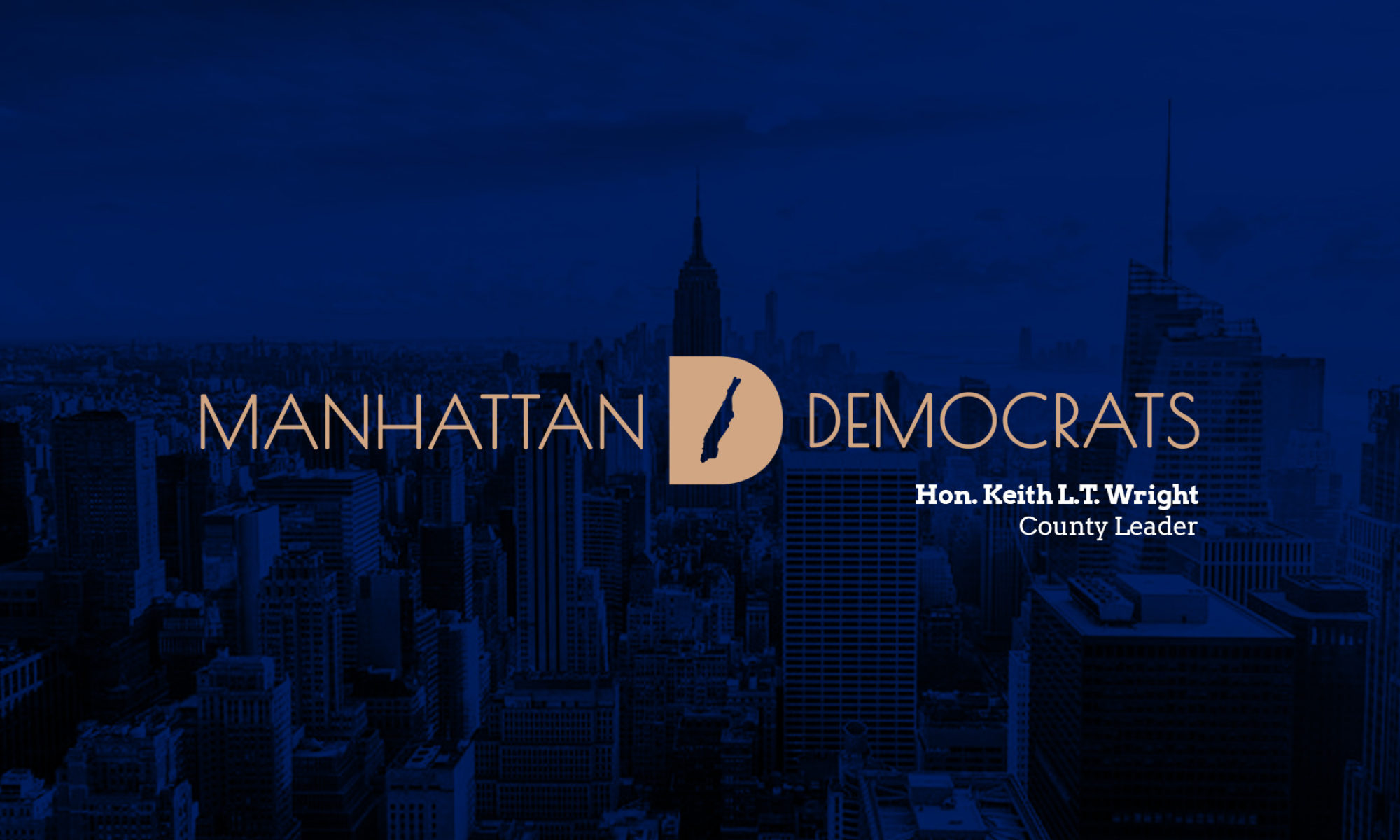FOR IMMEDIATE RELEASE
August 6, 2021
Last night the New York County Democrats gathered to nominate two fantastic jurists, Judge Margaret Chan and Judge John “J.J.” Kelley, for the New York State Supreme Court for the First Judicial District. Opened by County Leader Keith L.T. Wright, chaired by New York County Democratic Committee Chair Domenico Minerva, and organized by Executive Director Kyle Ishmael, Law Chair Darren Marks, and District Leader Arthur Schwartz, the Convention required significant logistics to verify attendees’ vaccination status and stagger check-in to minimize the amount of time necessary for the over 180 Delegates and Alternate Delegates to spend indoors. We would also like to thank our host, the School of Visual Arts Theater, for accommodating these logistical needs.
The Convention nominated Acting Supreme Court Justice Margaret Chan for the first vacancy. Judge Chan has both been reported out of the New York County Democratic Party’s Independent Judicial Screening Panel twice as highly qualified and been found highly qualified by the Independent Judicial Commission. Having been on the bench for 14 years, Judge Chan has extensive experience over her 9 years as an Acting Supreme Court Justice overseeing complex cases and trials, and is well-known for her important, well-reasoned, and clear written decisions in important cases that have been repeatedly upheld by the Appellate Division. As an immigrant from Hong Kong who has made New York her home for nearly 50 years and who began her career as an immigration attorney working with Ben Gim, the first Asian American attorney to argue before the U.S. Supreme Court, Judge Chan is an exemplar of the commitment to merit, character, and diversity that Manhattan Democrats look for in their New York State Supreme Court Justices.
For the second vacancy, the Convention nominated Acting Supreme Court Justice JJ Kelley. Reported out twice by the New York Democratic Party’s Independent Judicial Screening Panel as highly qualified, Judge Kelley has served as a jurist for 17 years, serving as an Acting Supreme Court Justice since 2018. As an Acting Supreme Court Justice, he presided over 58 complex jury trials before COVID and has completed 5 jury trials since COVID began and made such trials even more complex. A former volunteer firefighter and ambulance driver, his calm, capable, but affable court demeanor continue to support New York County’s reputation for the electing the most meritorious and civic-minded jurists to handle the legal disputes that New Yorkers find themselves bringing before our courts.
While we are thrilled to put forth such highly-qualified and meritorious nominees, we were disappointed and dismayed that the New York State Legislature has not allowed for virtual meetings since it repealed the Governor’s emergency powers and the Governor declared an end to the pandemic emergency on June 24th. With COVID cases once again on the rise due to the Delta variant, bodies such as the New York County Democratic Committee’s Judicial Convention need the option to conduct business remotely to reduce the risk of large gatherings to the health of the public and to our members, especially those who are immunocompromised or have pre-existing conditions that make them more vulnerable to COVID infection. We call on the Legislature and Governor to temporarily amend the Open Meetings Law or allow for an executive order doing the same so that organizations across the state can conduct business virtually once again as infections rise and the risk to New Yorkers’ increases.
The New York County Democratic Committee is the official home for Manhattan Democrats. The livestream of the Convention can be found on our Facebook page at https://www.facebook.com/262700364088/videos/781088335893140
###

